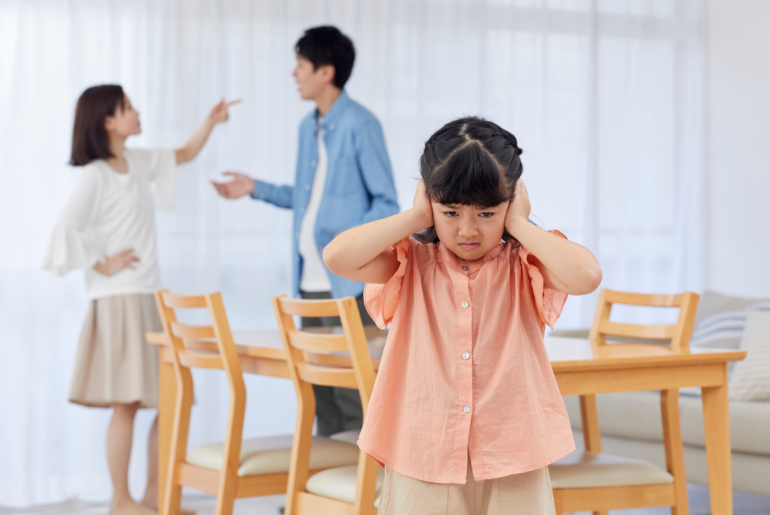Nobody was raised with perfect family dynamics, completely open communication, and healthy emotional processing for every single situation—but many of us were raised in environments where we were exposed to negative lessons and unhealthy coping strategies. Many parents are trying hard to unlearn those lessons to avoid passing the same issues on to their own children.
How to recognize toxic family dynamics
Toxic family dynamics can perpetuate unhealthy coping skills and patterns of behavior for generations, so it’s up to parents to recognize and heal from those toxic behaviors. Here’s what toxic family dynamics might look like—
- An adult parent or caregiver caring more about how things “look” than how the child feels
- Frequent unconstructive criticism
- Staying upset or confused without attempting to resolve conflicts
- Pitting siblings against each other
- Family members must always align and agree—having your own opinions, goals, identity, etc. results in guilt, ridicule, or gaslighting
- Lack of privacy or no respect for boundaries
- Negative feelings (anger, sadness, frustration) are not tolerated
- The child is held responsible for the adult’s feelings
- Manufactured dependency (family uses money, guilt, etc. to manipulate others and keep them dependent)
If you recognize any of these signs of toxic family dynamics from your own childhood, it might be time to confront them and reparent the parts of yourself that didn’t get what they needed growing up.
How to heal from toxic family dynamics
Healing isn’t a linear process, and it looks different for everyone, but the goal is to repair the parts of yourself that are still hurting from those toxic behaviors. This can be achieved through reparenting, or giving yourself the emotional support and love that you needed as a child. Here are a few tips for starting the healing process from a toxic generational pattern of behavior—
- Set boundaries. Let your family know what you will and will not tolerate, and stick to it.
- Seek therapy, which can help you process your emotions, identify unhealthy patterns, and develop healthy coping strategies.
- Surround yourself with people who support you and encourage you to be yourself.
- Practice self-care. Take care of yourself physically, emotionally, and spiritually. Do things that make you feel good and bring you joy.
- Sometimes, the best way to break free from a toxic family is to create distance. This could mean moving out, limiting contact, or cutting ties altogether.
Healing can best be achieved with the support of a therapist or counselor. Journaling and meditation are other helpful tools for those working to heal from toxic family dynamics. There are also resources online to help you along your healing journey.







